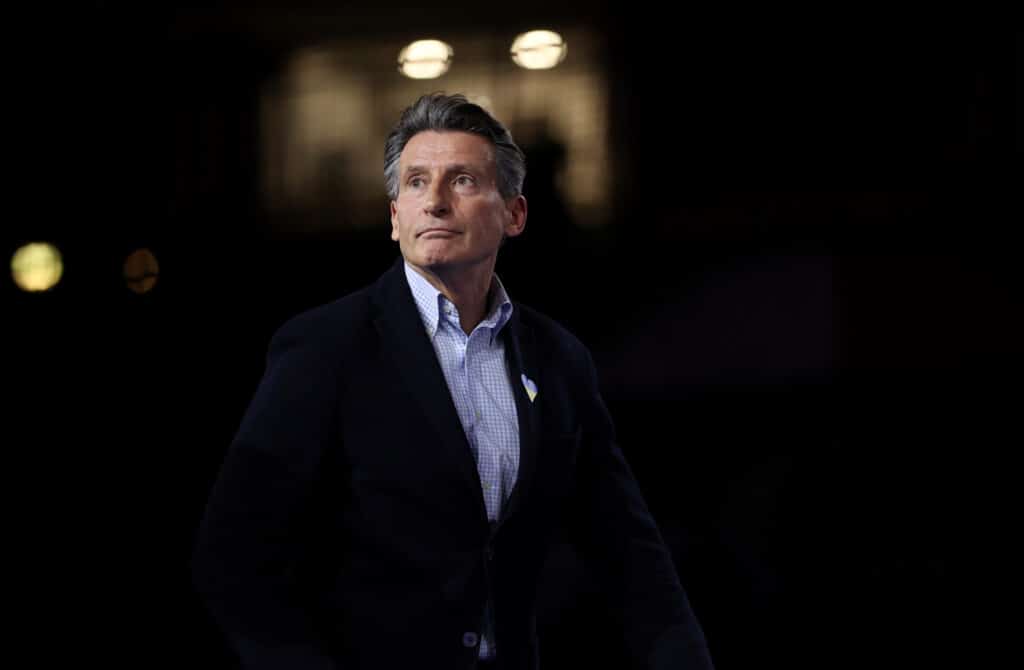FIFA and World Athletics hint at banning trans athletes as both launch policy reviews

More and more sporting governing bodies are launching reviews into their trans eligibility policies. (Naomi Baker/Getty Images)
FIFA and World Athletics could soon follow the governing bodies of swimming and ruby in banning trans as both launch policy reviews.
The international football federation is to review its eligibility rules for trans footballers, Reuters reported.
“FIFA is currently reviewing its gender eligibility regulations in consultation with expert stakeholders,” a spokesperson told the news agency.
“Due to the ongoing nature of the process, FIFA is not in a position to comment on specifics of proposed amendments to the existing regulations.”
World Athletics president Sebastian Coe told BBC Sport that the organisation’s council will examine its policy at the end of the year.
Coe praised FINA, swimming’s world governing body, for voting to restrict the participation of trans athletes in elite women’s competitions.
The new guidelines bar any trans woman who has gone through one of the early stages of puberty by age 12 from competing at all. Those ineligible will instead compete in an “open” category instead.
“If it’s a judgement between inclusion and fairness, we will always fall down on the side of fairness,” Coe told the broadcaster.
“We see an international federation asserting its primacy in setting rules, regulations and policies that are in the best interest of its sport.
“This is as it should be. We have always believed that biology trumps gender, and we will continue to review our regulations in line with this. We will follow the science.”
Coe added that research has shown that testosterone is a “key determinant in performance” – though some scientists have found this isn’t so clear-cut.
Studies have suggested that the hormone isn’t even the reason for some performance differences between trans and cis athletes.

Sebastian Coe, president of World Athletics, has suggested the body may ban trans women. (Maja Hitij/Getty Images for World Athletics)
The International Olympic Committee (IOC) released new guidelines that said there is no need for trans women to lower their testosterone to compete against cisgender women.
“Until evidence determines otherwise, athletes should not be deemed to have an unfair or disproportionate competitive advantage due to their sex variations, physical appearance and/or transgender status,” it said.
But the IOC left it to individual sports federations to decide whether trans people would be eligible to play.
“Fairness” has been a word thrown around in abandon by federations as they move to limit or ban altogether trans people from taking part in sports.
Only one day after FINA’s new policy went into effect, the International Rugby League (IRL) announced it is blanket banning trans women from international rugby league matches as it reviews its “transwomen inclusion policy” until 2023.
“The IRL will continue to work towards developing a set of criteria, based on best possible evidence, which fairly balance the individual’s right to play with the safety of all participants,” the organisation said.
The Union Cycliste Internationale (UCI), which administers cycling tournaments, restricted even further its already stringent eligibility rules for trans athletes on 16 June.
The transition period for trans cyclists was doubled to two years, while the maximum testosterone level was decreased even further, the body said. This was done, it said, for the “essential need for fairness”.
The UCI admitted that “these rules are stricter and more restrictive than those published by the International Olympic Committee (IOC) in 2015”.
World Athletics has faced sustained criticism over its hormone restrictions in certain women’s events. These restrictions cost Caster Semenya, an intersex South African Runner, her shot in the Tokyo 2020 Olympics.
“I refuse to let World Athletics drug me or stop me from being who I am,” she said after losing her final court appeal to compete in the 800 metres race in 2020.
“Excluding female athletes or endangering our health solely because of our natural abilities puts World Athletics on the wrong side of history.”

